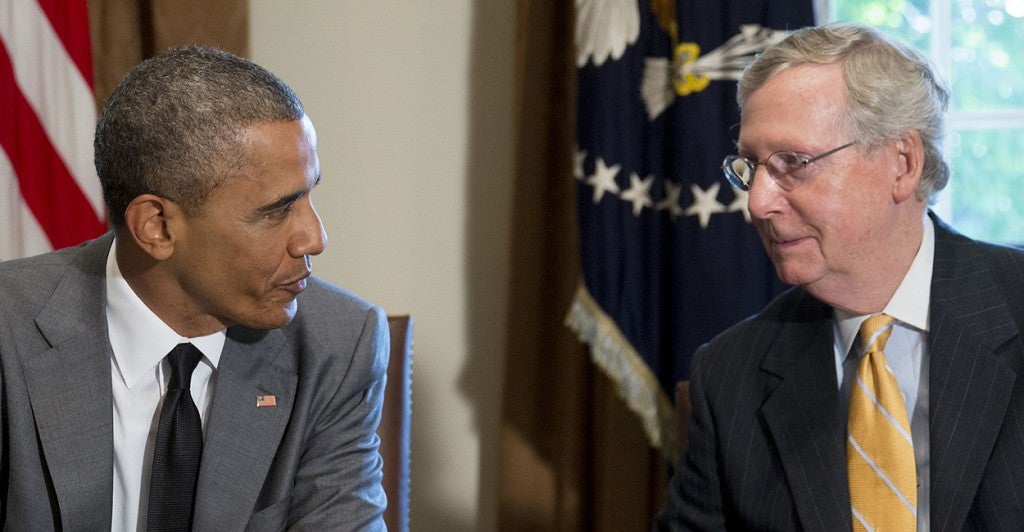Congress doesn’t have to take this sitting down.
Last week, President Obama announced executive actions on immigration that would defer deportation for millions of illegal immigrants. Members of Congress should rightfully be concerned that the president is usurping their legislative power and, at a minimum, not faithfully executing the law.
There are a variety of ways that Congress can try to rein in the president. Here are just some:
1. Power of the Purse. This is the most frequently discussed option. The U.S. Constitution provides this important power so that Congress can provide an effective check on the executive branch.
Congress routinely prohibits the use of funds in appropriations bills when it seeks to prevent the executive branch from taking undesired actions. The president’s executive actions require specific actions be taken in order for them to be implemented, such as the processing of applications. Congress can simply prohibit the use of funds for the implementation of the president’s executive actions.
It doesn’t matter whether the funds are made available through appropriations or user fees, or whether a program is funded through mandatory or discretionary spending. Congress can pass legislation that prohibits the use of funds for a certain purpose.
This year, the Senate might oppose an appropriations measure that would block funding to implement the president’s executive actions, or the president could veto such a measure. If the president vetoed a bill, then he would be shutting down the government, not Congress. He would be shutting down the government because he isn’t being allowed to take unilateral action that is certainly an abuse of executive power. At that point, Congress would need to carefully decide what action it should take.
By passing such legislation, at least Congress would have put into a bill its clear opposition to the president’s actions. If the appropriations bill were somehow to become law and the president were to spend the money anyway, the president would be acting contrary to the express will of Congress—it would be a completely unambiguous violation of the law. If the appropriations bill didn’t become law, then at least Congress has made its views known through legislative text.
2. Sense of Congress Resolution. If Congress were to pass a sense of Congress resolution expressing its opposition to the president’s actions or a resolution of censure, it wouldn’t stop Obama but it would expressly state the views of Congress. A sense of Congress resolution also doesn’t require the president’s signature.
3. Nominees. Congress could stop taking action on judicial and executive nominees.
4. Stand-alone Legislation: Congress could develop legislation that clarifies that existing immigration law doesn’t allow for deferring deportation of the illegal immigrants covered under the executive actions. Of course, the president would likely veto such a bill, but it would further establish the position of Congress
5. Lawsuit: Congress could try and file a lawsuit against the president or join a lawsuit filed by state attorneys general seeking to block implementation of the executive actions.
Congress should keep all its options on the table, including oversight of the executive branch. The principle of separation of powers is central to our Constitution and critical to the functioning of our country. As Congress considers what to do, it should remember what’s at stake.
